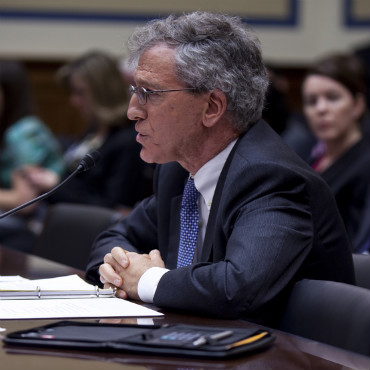Longtime procurement expert Gordon set to retire

The former OFPP administrator and GAO executive, now an associate dean at GWU Law School, is retiring in July.

Dan Gordon (above) is set to retire from his university position in July of this year.
Come mid-summer, one of the workhorses of federal procurement is set to retire after decades of direct and advisory service to the government.
Dan Gordon, former administrator of the Office of Federal Procurement Policy and now an associate dean at George Washington University Law School, told FCW in an interview that he has been gradually pulling back from his many advisory roles in the last few months with an eye to retiring by July.
"The goal for July 1 is full retirement," he said, adding that after that he plans to focus on his continuing study of Chinese languages and then, whatever comes.
Looking back, Gordon said his enthusiasm for the federal government's procurement system is undimmed, even in the face of the increasing complexity and technological changes that have many calling for reform of the system.
A complete overhaul, he said, could be a little shortsighted, given the system isn't really broken so much as in need of updating. "The U.S. procurement system is a good one," he said. "We tend to focus on the negative, though. We get high quality equipment to war fighters and we do a good job of getting IT systems that work. Our system has more transparency. It is good and effective."
The evolution of the system is critical, however. Agile development, more competition, and innovation are all important ingredients in that evolution, he said. Congressional micromanagement of the process is not.
In fact, Gordon said, Congress' push for procurement legislation after high-profile IT system failures could be counterproductive.
"The House and Senate love to micromanage," he said, but more laws are not needed. Finding ways to get agency IT and contract personnel to work more closely together and inject more uniformity into the procurement process across government are what's really required.
The procurement system's biggest flaw, according to Gordon, is a lack of investment in staff. "There is an unwillingness to spend adequate money on 1102 [contract specialists] and training. There's not enough staff."
In his years in federal service, Gordon became a respected voice in the intricacies of procurement law and policy. He spent 17 years at the Government Accountability Office, serving as assistant general counsel in the Legal Services Division and managing associate general counsel in the Procurement Law Division before being appointed deputy general counsel in 2006 and acting general counsel in April 2009.
During his two years as OFPP administrator, from 2009 to 2011, he worked on a variety of acquisition issues, from improving and standardizing the workforce to overseeing the implementation of strategic sourcing to pushing for more industry and agency communication through his "mythbusters" campaign. He has frequently testified on acquisition issues before Congress.
He also took on longstanding problems such as requiring business cases for new multiple-award contracts to help gain control over these vehicles, which have grown dramatically in the last decade.
And he led the charge for a civilian agency acquisition workforce training fund, though he failed to persuade Congress to fund it.
NEXT STORY: Casey Coleman moving to Unisys Federal Systems


